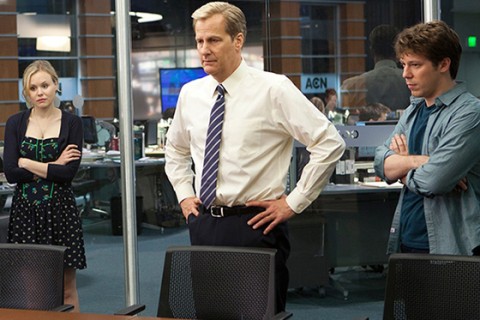Bully at the news desk

In North Carolina, the Republicans have control of both houses of the legislature and the governor’s office for the first time since Reconstruction. With no real opposition, they are rewriting the law books. That means regressive taxes, voter ID laws, anti-Shari‘a legislation and slashed support for teachers and public universities. We’re the new Wisconsin. But nastier.
The Newsroom, now in its second season on HBO, tries to get to the heart of this political moment. It features a Keith Olbermann–like bully of a news anchor named Will McAvoy (Jeff Daniels, a fine actor who may finally be living down Dumb and Dumber), a moderate Republican who decides to return journalism to the truth-telling business.
In a critical backstory scene in the first episode, a panel in which McAvoy is participating is asked by a college student to say why America is “the greatest country in the world.” A liberal panelist says, “Diversity and opportunity”; a conservative replies, “Freedom and freedom, so let’s keep it that way.” McAvoy spots his ex-girlfriend in the audience, a woman who had always inspired him to tell the truth, however unpopular. MacKenzie McHale (the magnificent Emily Mortimer) holds up a sign that says simply, “It’s not.” Then another: “But it could be.”





